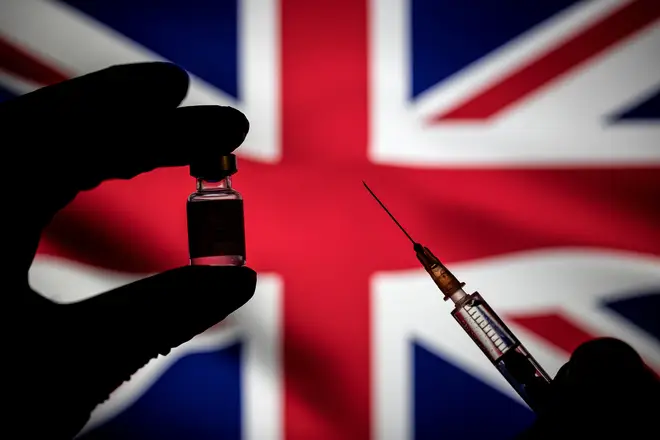
Ben Kentish 10pm - 1am
24 February 2021, 11:07

A new study from Oxford University suggests over three quarters of people in the UK are now “very likely” to take the Covid vaccine, but Leave voters are seven percentage points less likely to take it than Remainers.
The survey of over 1200 Brits, found the proportion saying they would be “very likely” to take the vaccine has increased from 50 percent to over three quarters, between October and February.
Although around seven percent of the population say they are still “very unlikely” to take the jab, most people who said in October that they “didn’t know” or were “unlikely” to have the vaccine, say they are now “very likely” to do so.
Political factors were a “very strong predictor willingness to take the vaccine”, the study found.
Those who didn’t vote, or voted Brexit or Green party in the December 2019 election were least willing to take the vaccine, while SNP and Liberal Democrats were most positive about the jab.
Supporters of Nigel Farage’s new Reform UK party - formerly the Brexit Party - are the most hesitant, with just over 50% saying they will take the vaccine, compared to 100% of SNP voters.
Read more: 'No problems' with Covid-19 vaccine supply chain, Williamson tells LBC
Read more: Prince Philip expected to remain in hospital for 'several days' to treat infection

No need for concern over lower daily vaccination numbers, Williamson tells LBC
Voting leave or not voting in the Brexit referendum was also a good predictor, with Remainers seven points more likely to be willing to take the vaccine.
Professor of Comparative Democratic Institutions Ben Ansell, who led the study, said overall it showed “people have become massively more supportive of taking the vaccine”.
However, he added: “important gaps remain especially among groups whose trust in politicians is typically lower: non-voters, younger citizens, and poorer households”.
“When so much of the UK Government’s lockdown exit strategy rests on successful vaccine roll out, these insights will be of immediate importance to policymakers in both their internal deliberation on policy and their outward facing communication with the public.”
Read more: Universities say all students could return to in-person teaching after Easter
Read more: Gavin Williamson questioned over vaccine passports

Foreign Office minister urges BAME communities to get the vaccine
There have been particular concerns about vaccine hesitancy among ethic minorities, with the study suggesting efforts to tackle vaccine hesitancy are working.
Ethnic minority respondents were 10 percentage points less likely to wish to take the vaccine, down from over 20 percent in October. However, the authors suggest these findings should be taken cautiously.
Read more: Anti-vaxxers are targeting BAME groups, warns leading nurse
Watch: Maajid Nawaz analyses 'trauma' at heart of BAME vaccine skepticism

Maajid Nawaz's powerful explanation of vaccine skepticism BAME groups
Respondents to the study were broadly supportive of the government’s performance in rolling out the vaccine and in who received priority for the vaccine, but showed greater concerns about the policy of delaying the second dose of the vaccine.
In a boost to the UK’s vaccine policy, the study, published in The Lancet medical journal added this supports "delaying the second dose in countries facing vaccine shortages and scarce resources, so as to allow higher population coverage with a single dose”.
However it said more research is needed on the long-term effectiveness of a single dose "to inform a second dose delay policy".